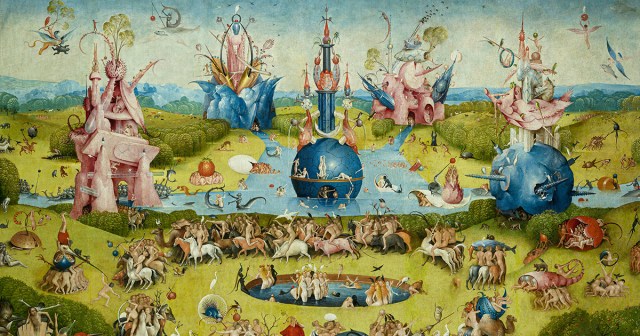
TL;DR
- The benefits of the internet are eroding and the AI boom is only accelerating their demise, says technology critic Paris Marx.
- He calls out the greed of Amazon, Facebook, Google and OpenAI for putting profit before social value.
- So what’s Marx going to do about it? Well, to paraphrase his 19th century namesake, we need to tear down the machine and build us all a new one.
READ MORE: The digital revolution has failed (Disconnect)
There’s a conspiracy theory that the web is effectively dead, and made up primarily of bots and generated content. While that may not already be true, the AI companies seem determined to make it a reality.
So says Paris Marx, writer of the Disconnect newsletter and host of the Tech Won’t Save Us podcast, considering the death of the open internet at the hands of corporate greed.
In a blog post, he claims that the digital revolution has failed. This is the idea, enshrined by liberal thinkers at the birth of the World Wide Web in the mid-1990s, that the virtual world would be a place for equals “free from the burdens of race, sex, or wealth,” and from the dictates of government or business.
Instead, this utopia has been slowly strangled by its own “platformization.” Marx concedes that the compartmentalization of the web much easier for billions more people to get online but it created huge power and wealth in the hands of a few.
Google and Facebook get it with both barrels. “The greed of those two companies has sent news media spiraling, with lower ad revenue leading to successive layoffs that reduce the quality of the journalism they publish while their websites are stuffed with poor quality ads if not locked behind a paywall altogether,” Marx writes.
Amazon doesn’t escape either and neither do streamers, but compared to where we are now, “we look back on those times as the good old days, before the ambitions of tech companies vastly expanded and the pressure for profit accelerated the degradation of what they’d built,” he recalls.
“Everything must be sacrificed on the altar of tech capitalism,” he says, of which AI is the nadir.
It is corrosive to society, culture, politics and anathema to us as human beings, he suggests.
“The effort to route as many interactions as possible through apps and make our smartphones as addictive as possible has spawned an epidemic of loneliness and even social disconnection.”
AI tools are emphatically not beginning of a vast expansion in human potential, says Marx. “They’re not intelligent or prescient; they’re just churning out synthetic material that aligns with all the connections they’ve made between the training data they pulled from the open web.
Once again, the push to adopt these AI technologies isn’t about making our lives better, it’s about reducing the cost of producing ever more content to keep people engaged, to serve ads against, and keep people subscribed to struggling streaming services. The public doesn’t want the quality of news, entertainment, and human interactions to further decline because of the demands of investors for even greater profits, but that doesn’t matter.”
He calls out the massive (hidden) energy, water, and mineral cost of running all the data centers behind AI tools to show “how little the proliferation of AI tools has to offer us.”
READ MORE: AI is fueling a data center boom. It must be stopped. (Disconnect)
So what’s Marx going to do about it? Well, to paraphrase his 19th century namesake, we need to tear down the machine and build us all a new one.
“Another internet is possible,” he says. “The time for tinkering around the edges has passed. The only hope to be found today is in seeking to tear down the edifice the tech industry has erected and to build new foundations for a different kind of internet that isn’t poisoned by the requirement to produce obscene and ever-increasing profits to fill the overflowing coffers of a narrow segment of the population.”
Alas, as well written as this sermon is, Marx has no manifesto for how to knock this house right down.
He argues that “we don’t have to be locked into the digital dystopia Silicon Valley has created,” but can’t serve up an alternative except with a loose sketch.
As the web declines, Marx says, “we need to consider what a better alternative could look like and the political project it would fit within.”

